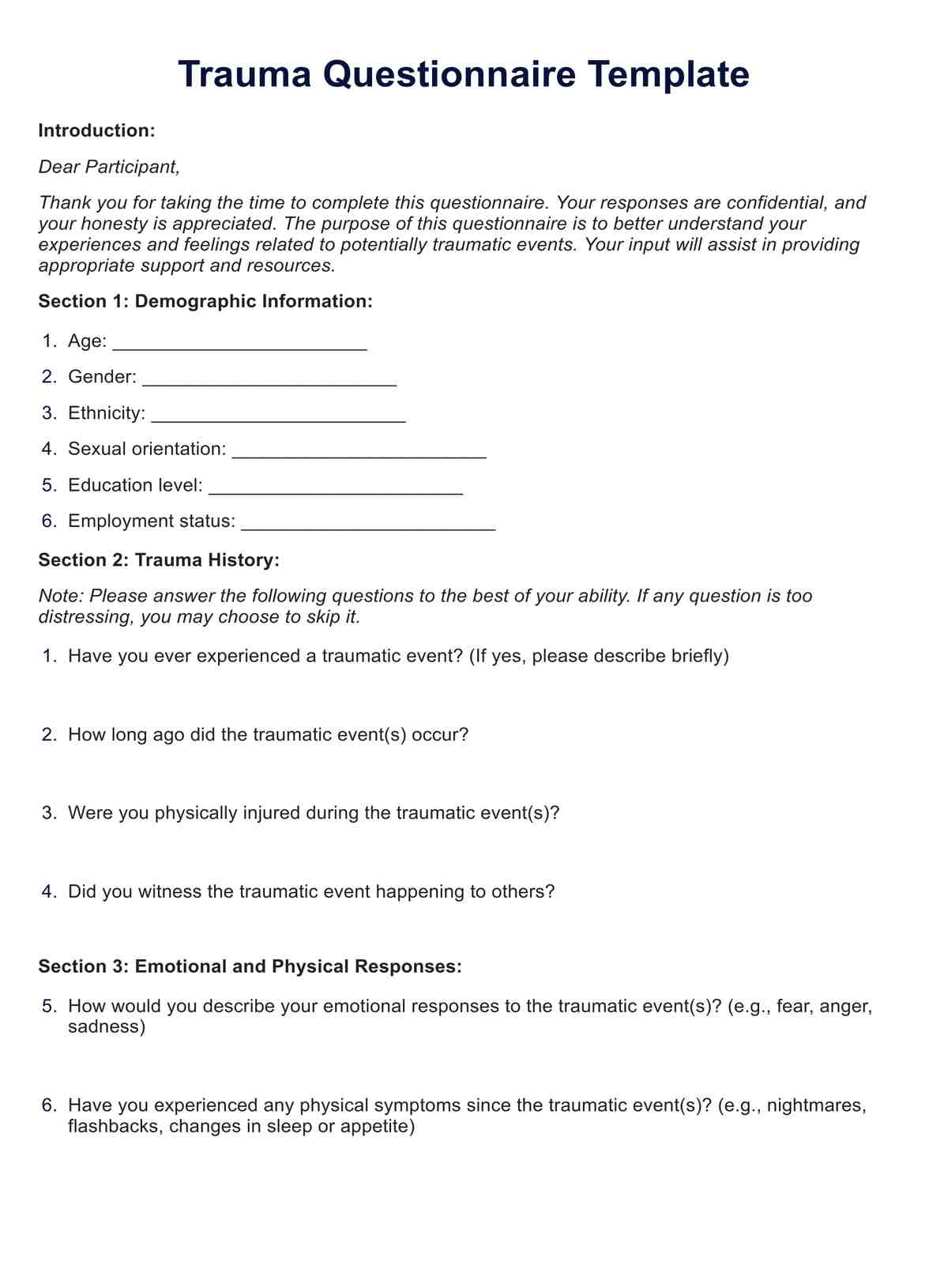The trauma questionnaire is a structured tool designed to assess an individual's exposure to traumatic events and the resulting psychological impact. It serves as a valuable resource for mental health professionals to understand, evaluate, and address the effects of trauma on an individual's well-being.

Trauma questionnaire
Looking for a trauma questionnaire? Find a free PDF download here to help assess and understand trauma-related symptoms in individuals.
Use Template
Trauma questionnaire Template
Commonly asked questions
The best assessment tool for trauma often depends on the specific needs of the individual and the goals of the evaluation. Self-report measures, like the International Trauma Questionnaire, are widely used, providing valuable insights into traumatic exposure and its psychological impact.
EHR and practice management software
Get started for free
*No credit card required
Free
$0/usd
Unlimited clients
Telehealth
1GB of storage
Client portal text
Automated billing and online payments











